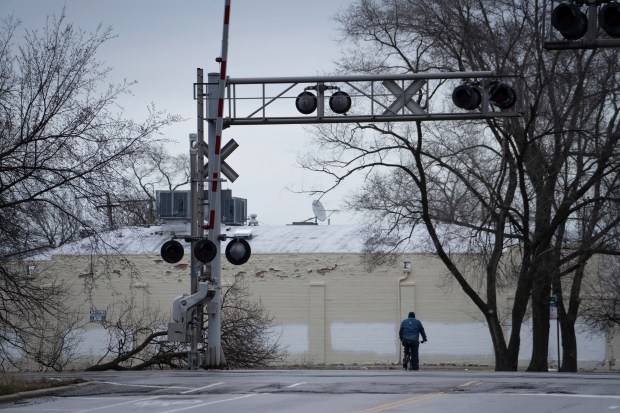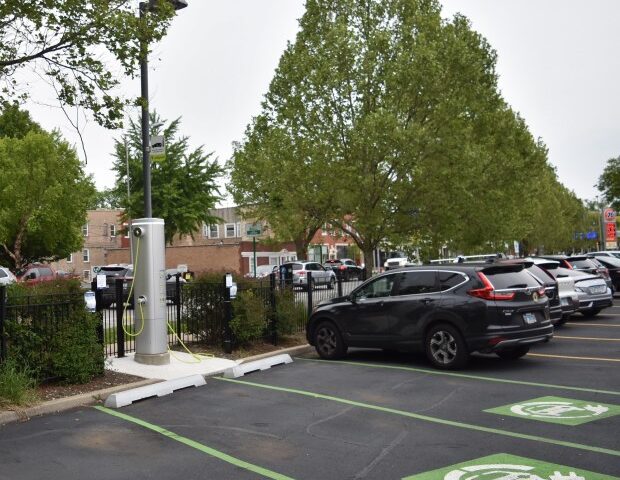The CTA has awarded a construction contract to extend the Red Line south to 130th Street, marking a major step forward in long-running plans to bring train service to Chicago’s Far South Side.
The contract also offers a window into how the costs of the massive project are shaping up. The latest estimates put the project at $4.8 billion before financing costs, about $1.16 billion over earlier estimates.
Some of the project costs are expected to be covered by a large federal grant, and Chicago aldermen previously approved a special tax district that enabled the grant and will raise additional money. But the CTA wasn’t awarded as much federal funding as the agency initially sought, and will have to finance significantly more through bonds than initially planned.
The funding was one step to move the project forward. The award of a construction contract was the next step, celebrated by CTA officials and President Dorval Carter as they have faced years of complaints about CTA service, safety and conditions.
Carter became emotional as he told a packed transit board room about his return to Chicago from federal jobs, his skill at getting federal money and his work to make the Red Line extension a reality. Speaking through tears, he highlighted his focus on ensuring the rail extension came to fruition.
“I’d been hearing about (this project) my entire life,” he said. “I’ve been a part of this agency when there were previous discussions about making this happen that died. I was never in a position to influence that earlier in my career. And so when I finally got the chance, the opportunity, the blessing to become the head of CTA, I didn’t have any doubt what my No. 1 priority was going to be. It was going to be to make this project happen.”
The project, discussed for more than 50 years, has the potential to be a major investment in the city’s Far South Side, even as it has meant acquiring dozens of residents’ homes. The CTA has touted the project’s ability to boost equity, save commuting time between the Far South Side and the Loop, improve connections to the neighborhoods and promote economic opportunity and sustainability.
The work will extend the Red Line 5.6 miles past its current terminal at 95th Street. The new track is expected to be elevated for much of its length and run at ground level near its end, with four stations planned: at 103rd Street near Eggleston Avenue, 111th Street near Eggleston, Michigan Avenue near 116th Street, and 130th Street near the northeast corner of Altgeld Gardens.
On Wednesday, the CTA awarded a $2.9 billion contract to a partnership known as Walsh-VINCI Transit Community Partners to engineer, design and build the tracks and stations. A separate contract to build a rail yard and shop as part of the project has yet to be awarded.
The partnership includes Walsh Construction, VINCI Construction, EXP, Systra and subcontractors. Walsh, EXP and Systra have also worked on the CTA’s massive, ongoing reconstruction of a section of the Red Line on the North Side.
Construction on the extension could start in late 2025, with preliminary work like relocating utilities and demolishing buildings beginning in the coming months. If all goes according to plan, service on the new tracks could begin in 2030, the CTA said.
Billed by the CTA as the largest project in the agency’s history, the work could create more than 12,500 construction jobs, the CTA estimated.
All told, including financing costs, the project’s price tag is now $5.3 billion. The CTA attributed cost increases to rising prices for construction materials, labor and financing. But the agency did get some relief when the federal government committed to giving a higher portion of its pledge to the CTA in the first year of the project.
Still, the CTA now plans to issue $1.99 billion in bonds to cover project costs, up from an anticipated $266 million.
About $1.97 billion is expected to come from the large grant from the Federal Transit Administration. The CTA hasn’t yet gotten the money, but the funds are considered locked in as the project progresses. The agency had initially requested $2.37 billion from the federal grant — an unusually large proportion of the project costs — but did not receive the full amount requested.
The special tax district, approved by Chicago aldermen in December 2022, is expected to raise $950 million and help the CTA meet the required local match for the federal money. Other money will come from additional state and federal sources.
The project was hailed by CTA board members as they approved the construction contract. Chair Lester Barclay touted the opportunities presented by the extension, as he nodded to the construction costs and said the board acknowledged its financial responsibility to the public.
“The benefits of this project, through equity, connectivity, economic development and job creation, far outweigh and will outlast the costs,” he said. “There is a cost to time, in this case billions of dollars for a promise deferred decades ago. Deferring for another time will only add to the cost, and risk the possibility that this project will never become a reality. The time is now for the Red Line extension.”




